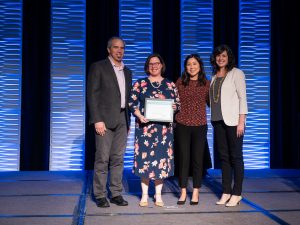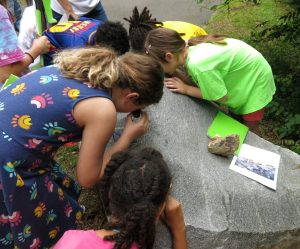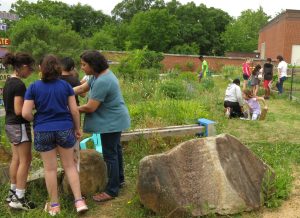UNC IE’s Center for Public Engagement with Science recognized with a 2020 Best of Green Schools Award from the U.S. Green Building Council
April 2, 2020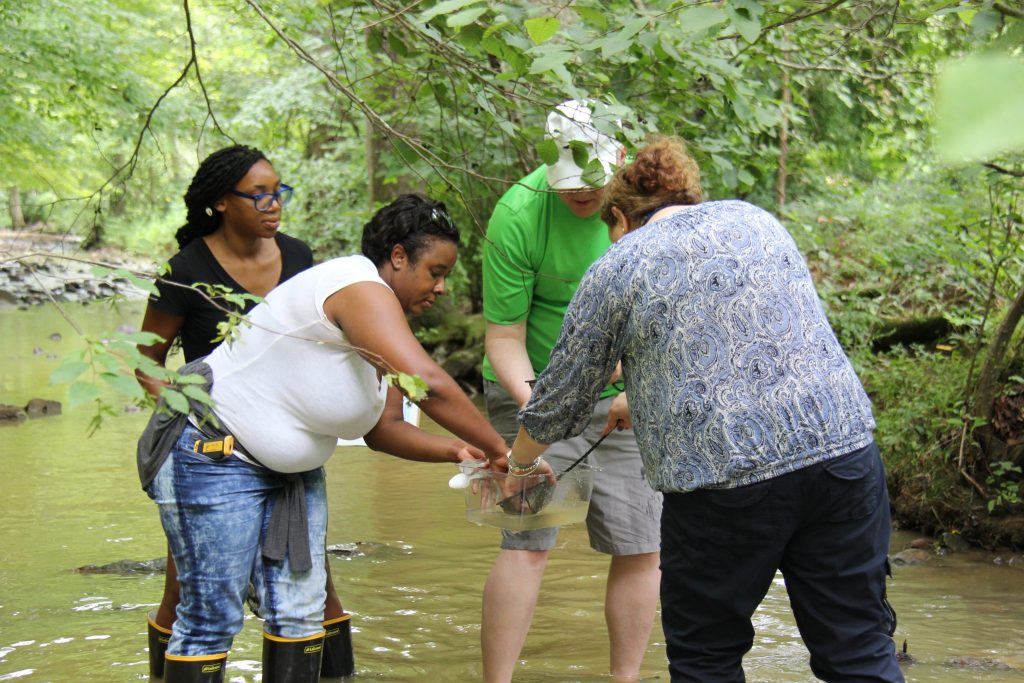
The UNC Institute for the Environment’s Center for Public Engagement with Science (CPES) was recognized this year with the 2020 Best of Green Schools Award for Higher Education for their Outdoor Wonder and Learning (OWL) Initiative at Northside Elementary in Chapel Hill, NC. Principal investigator and project lead, Sarah Yelton, accepted the award at the national Green Schools Conference and Expo Mar. 2-4 in Portland, OR.
“It is a truly an honor to be recognized as a model for how universities can support local schools in developing innovative learning approaches using the schoolyard and community,” says Yelton. “This award reflects a tremendous collaborative effort between our UNC project team and the teachers and administrators at Northside Elementary and Chapel Hill Carrboro City Schools.”
The award is given by the U.S. Green Building Council’s (USGBC) Center for Green Schools and the Green Schools National Network and celebrates the schools, districts, individuals and communities making strides toward the common goal of creating green schools for this generation.
“This year’s awardees are the best of the best among education, environmental and business leaders,” says Anisa Heming, director for the Center for Green Schools at USGBC. “Their commitment to breaking out of the status quo and charting new ground makes them excellent examples for all those working to make our schools sustainable, healthy places where students learn to lead the way forward and protect our environment for future generations.”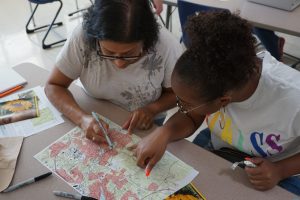
CPES was one of 10 recipients this year. The Northside OWL Program, started in 2018 and funded by a grant from the Duke Energy Foundation, is a yearlong professional development program that prepares elementary school teachers to integrate environmental and sustainability education into their curriculum through hands-on, real-world applications in the natural environment on and near school grounds. Dan Schnitzer, director of sustainability and capital projects at Chapel Hill – Carrboro City Schools, nominated the program.
“CPES developed six teaching units aligned with science curricula for grades 3-5 and integrating language arts, social studies and math concept,” Schnitzer wrote in the nomination. “All lessons are designed to give teachers tangible ways to use their green schoolyard and surrounding natural areas to enhance curriculum. To date, 11 teachers, 15 support staff, and by extension countless students, have participated in this model program.”
Program evaluation data show that participating teachers feel better prepared to teach science, effectively use outdoor environments as a context for learning, and engage their students in real-world investigations that can foster stewardship of natural resources.
“As a result, students have more opportunities to connect with the natural world and investigate environmental problems relevant to their daily lives, developing the critical skills and motivations they will need to take action now and in the future,” Yelton says.
Rita Singh, a 4th grade teacher (pictured above) at Northside who participated in OWL, was inspired to integrate more outdoor experiences into her lessons.
“This professional development has encouraged me to take students outside to learn and to make connections to the environment any chance I get,” she says. “I really enjoyed the hands-on activities, ideas for how to utilize our school grounds, and doing the activities with the people I work with. Mostly, I get students outside more and it helps them in so many ways.”
After completing OWL, Singh went on to complete other professional development programs in the environment, including pursuing North Carolina’s environmental education certification program.
“Teaching students to appreciate our environment will be the best way to get them invested in protecting it,” Singh says.

